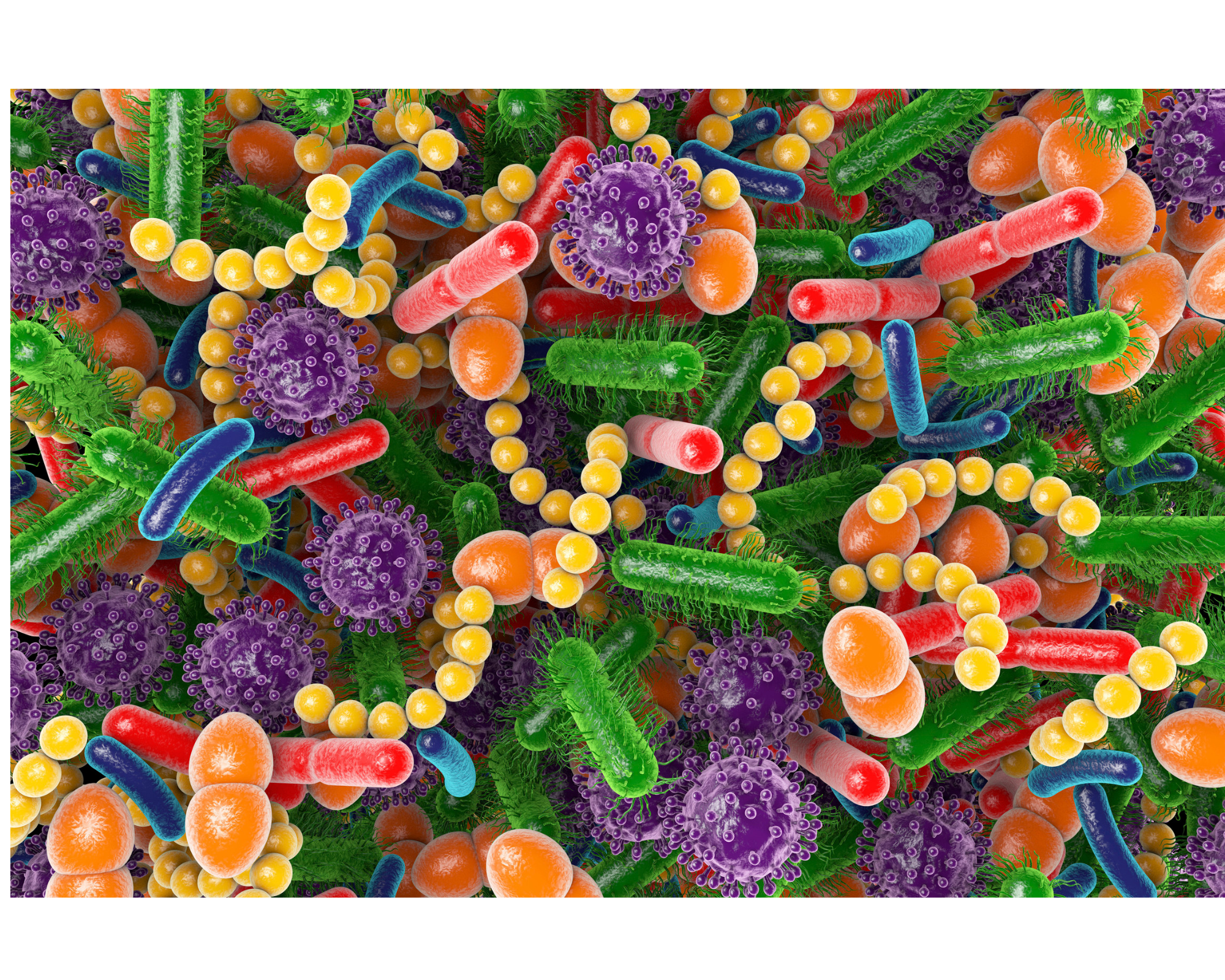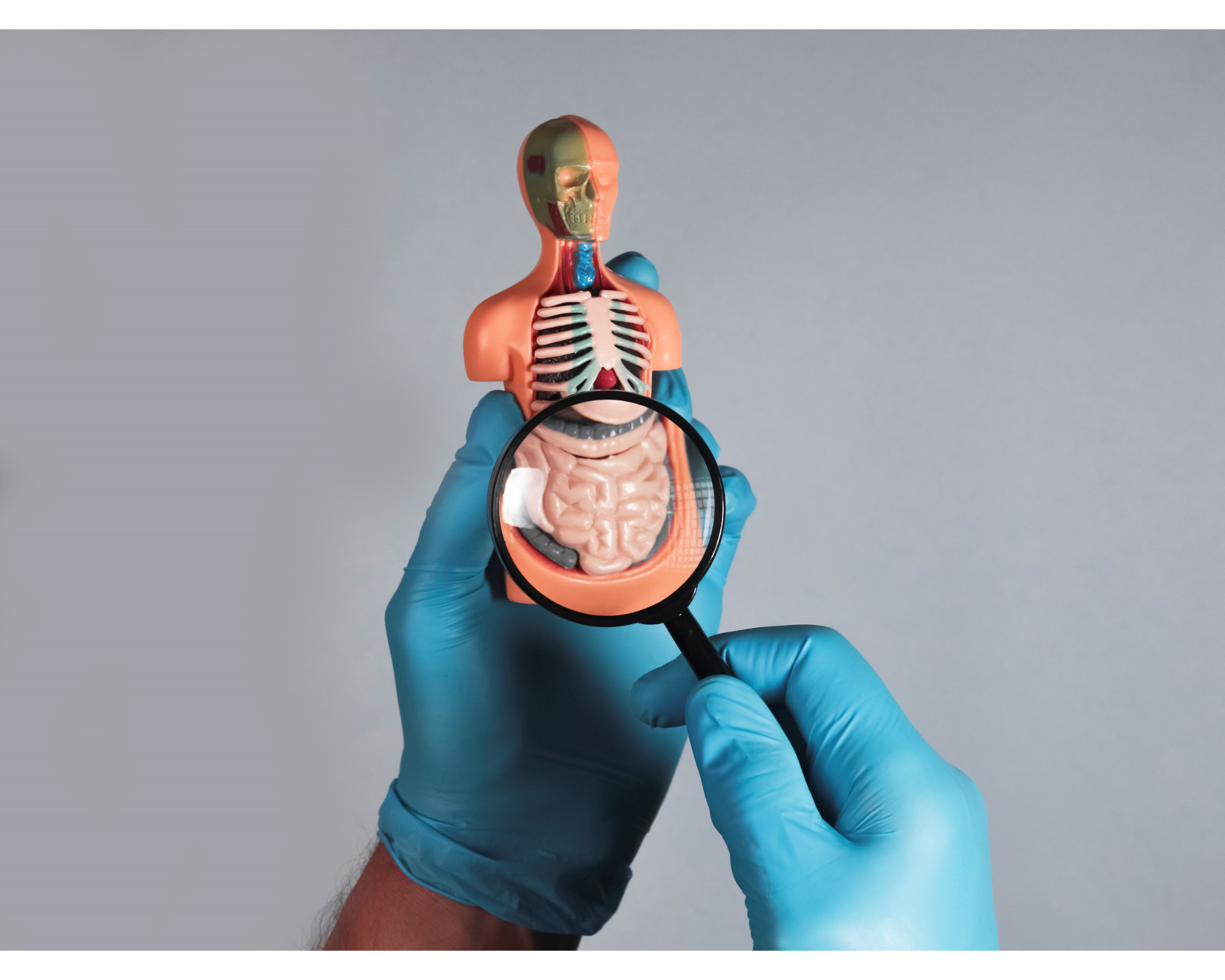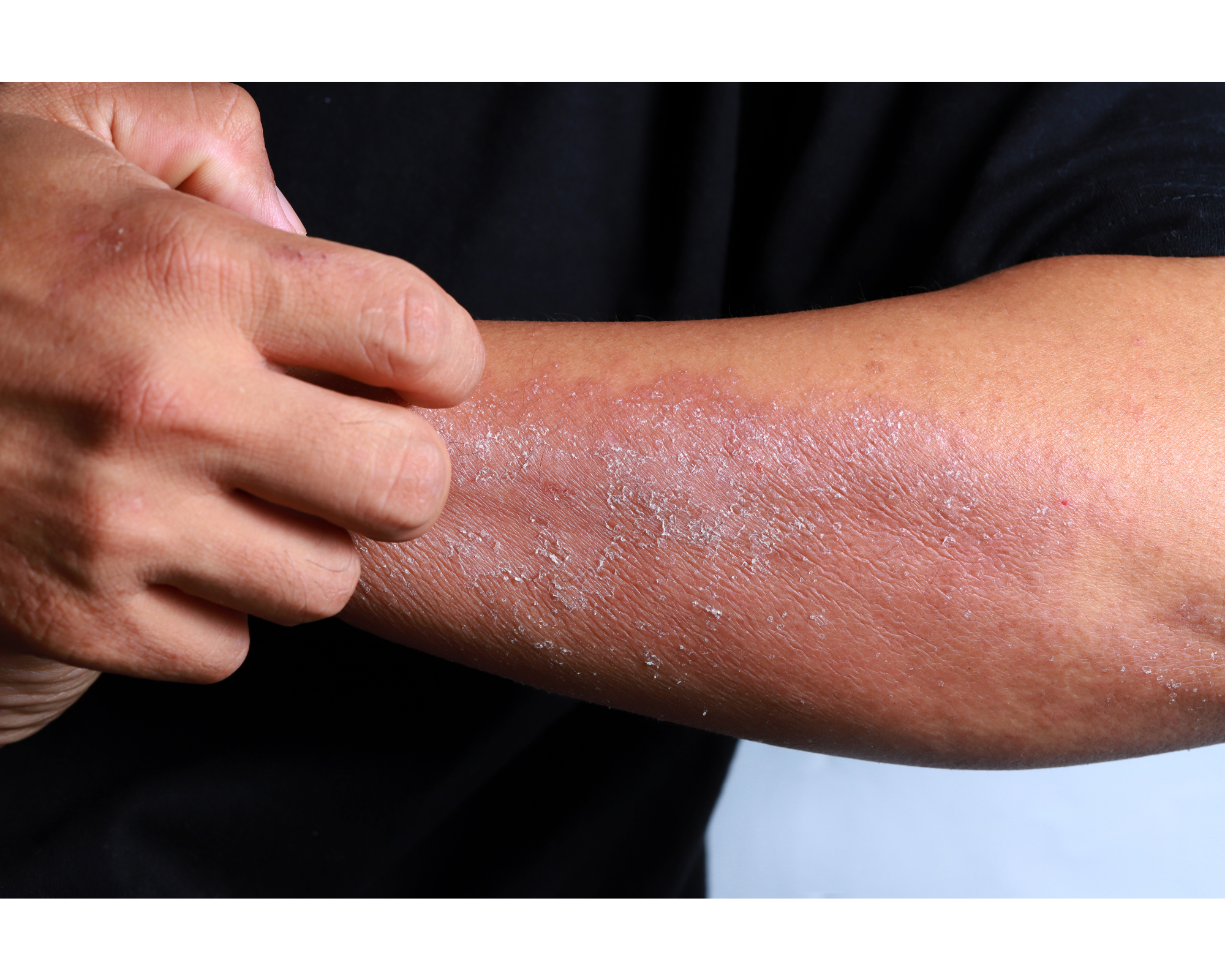
The Hidden Power of Fasting Intermittent: Unlock Natural Healing
Fasting intermittently is a popular way to improve health and wellness. It involves alternating between eating and fasting periods, allowing flexibility for those who want

In the fascinating world of the human body, the gut takes center stage. It is a hub of activity, influencing everything from digestion to mood. At the heart of this bustling ecosystem lies an array of microorganisms. Together, known as the gut microbiome. These tiny inhabitants play a pivotal role in maintaining our well-being. So what happens if there is a disturbance in this delicate equilibrium? When do symptoms of bad gut bacteria take the stage?
Welcome to our exploration of gut health and the signs that something may be wrong in your digestive kingdom. From bloating to mood swings, your gut has a fair amount to say when things aren’t right. Join us on this journey as we uncover the five symptoms that could indicate bad gut bacteria. This will allow you to decode your body’s messages and take action toward optimal gut health.
In this blog series, we’ll delve deep into each of these symptoms. We will offer insight into their causes and consequences. Lastly, we will give you practical steps you can take to restore harmony in your gut. It’s time to become your body’s detective. Identify the clues it provides and respond with tailored solutions that promote a happier, healthier gut.

Gut health refers to the state of well-being and optimal functioning of the gastrointestinal (GI) tract. The GI tract includes the stomach, small and large intestines, and associated organs such as the liver and pancreas. Good gut health is a balanced and harmonious environment within the digestive system. It supports digestion, absorption of nutrients, protection against harmful pathogens, and physical and mental health.
Key aspects of gut health include:
A critical component of gut health is the balance and diversity of the gut microbiome. It consists of trillions of microorganisms, including bacteria, viruses, fungi, and other microbes. A healthy microbiome is a diverse population of beneficial microorganisms. They help with digestion, immune system regulation, and the production of essential vitamins and nutrients.
A well-functioning digestive system efficiently breaks down food into nutrients (proteins, carbohydrates, fats, vitamins, and minerals). It then absorbs them into the bloodstream. Proper digestion and nutrient absorption are crucial for overall health and vitality.
A significant portion of the body’s immune system is in the gut-associated lymphoid tissue (GALT). A healthy gut microbiome is essential for training the immune system to recognize and respond to harmful pathogens. However, they still maintain tolerance to beneficial microbes and food antigens.
Emerging research has revealed the connection between the gut and the brain, known as the gut-brain axis. A balanced gut microbiome can influence mood, behavior, and cognitive function. However, stress and emotions can affect gut health. This communication system highlights the importance of gut health for mental and emotional well-being.
A healthy gut acts as a barrier against harmful pathogens. It prevents them from entering the bloodstream and causing infections or inflammation. Beneficial gut bacteria help maintain this barrier and compete with harmful microorganisms for resources and space.
The gut’s mucosal lining is essential for preventing a “leaky gut” or increased intestinal permeability. A damaged gut lining can allow undigested food particles and toxins to enter the bloodstream. Therefore, it triggers immune responses and inflammation.
Maintaining gut health involves various factors, including diet, lifestyle, and genetics. A high-fiber diet, fruits, vegetables, and fermented foods can promote a diverse and healthy gut. Additionally, staying hydrated, managing stress, exercising on a regular basis, and avoiding excessive antibiotic use can contribute to optimal gut health.
To support gut health, probiotics, and prebiotics are widely used. In cases of gut imbalances or chronic digestive issues, healthcare professionals may recommend probiotic supplements or other interventions to restore a healthy gut microbiome.
A balanced and healthy gut is integral to overall well-being. It affects immunity apart from digestion, mental well-being, and other physiological functions.

Imbalances in gut bacteria, or dysbiosis, can lead to a variety of symptoms and health issues.
Here are five common symptoms that may indicate an overgrowth of bad gut bacteria:
Digestive symptoms are often the most noticeable signs of an unhealthy gut microbiome. Symptoms can range from person to person.
These can include:
Bloating:
A bacterial overgrowth can produce excess gas due to a gut bacteria imbalance. Therefore, it leads to abdominal bloating and stomach discomfort.
Diarrhea:
An imbalance in gut bacteria may disrupt normal digestion. Therefore, the absorption of nutrients, thus, leads to diarrhea or loose stools in your daily bowel movements.
Constipation:
Dysbiosis can slow down transit time in the digestive tract, leading to constipation. Therefore, it causes stomach pain as well.
Reflux and Heartburn:
An unhealthy gut microbiota can affect the lower oesophageal sphincter, thus contributing to acid reflux and heartburn.
There are many diseases associated with bad gut health. Therefore, many of these diseases are symptoms of bad gut health.
Irritable bowel syndrome: I
Irritable Bowel Syndrome (IBS) is a common gastrointestinal disorder. It is a group of chronic symptoms related to the digestive system.
Inflammatory bowel disease:
IBD is a chronic autoimmune condition. It is chronic inflammation in the gastrointestinal tract. Symptoms of IBD include abdominal pain and diarrhea, which show signs of poor gut health.

Bad gut bacteria can influence food cravings and metabolism. It may lead to cravings for sugary and processed foods. Obesity or weight gain may result from this.
A balanced and healthy gut microbiome plays a crucial role in regulating blood sugar levels. Imbalances in gut bacteria can contribute to problems like insulin resistance and glucose intolerance. Therefore, it causes weight loss.

The gut-brain connection is well-established. An imbalanced gut microbiome can impact your mood and mental health.
Symptoms may include:
Anxiety
Depression
Irritability
Brain fog

Imbalances in the gut may cause skin issues such as acne, eczema, and rosacea. An unhealthy gut can lead to inflammation and may trigger skin conditions.
The “gut-skin axis” is a concept that highlights the relationship between the gut and the health and appearance of the skin.

Your gut plays a crucial role in supporting your immune system. When bad bacteria dominate, your immune system may become compromised, thus making you more susceptible to infections and illnesses.
Food allergies are immune-mediated reactions to specific proteins in certain foods. These reactions involve the release of immunoglobulin E (IgE) antibodies. They then trigger an immune response.

Several factors can contribute to or cause bad gut health. A disruption in the balance of your gut microbiome can lead to gastrointestinal issues.
Here are some common causes and contributors to poor gut health:
High Sugar and Processed Foods: A diet high in sugar, refined carbohydrates, and processed foods can promote the growth of harmful gut bacteria. It also reduces the number of beneficial ones.
Low Fiber Intake: Insufficient dietary fiber can deprive beneficial gut bacteria of their preferred food source. Unbalances may result from this.
Artificial Sweeteners: Some artificial sweeteners may disrupt the gut microbiome and negatively affect gut health.
Antibiotics are essential for treating bacterial infections. However, they can also harm the gut microbiome by killing beneficial bacteria along with harmful ones. Frequent or prolonged antibiotic use can lead to imbalances in the gut.
Chronic stress can have a profound impact on gut health. It can alter gut motility, increase gut permeability (leaky gut), and affect the composition of the gut microbiome.
Poor sleep patterns and inadequate sleep can negatively influence the gut microbiome. Therefore, it may contribute to gastrointestinal issues.
Conditions characterized by chronic inflammation, such as autoimmune diseases or inflammatory bowel disease, can disrupt the gut microbiome. Issues with gut health may result from this.
A food allergy or sensitivity can cause inflammation in the gut, possibly triggering gastrointestinal symptoms affecting gut health.
Food intolerances do not involve the immune system but can still lead to gastrointestinal symptoms. The most common example of a trigger food is lactose intolerance. In this case, the body lacks the digestive enzymes necessary to break down the sugar lactose, which is present in dairy products. Symptoms of lactose intolerance can include bloating, gas, diarrhea, and abdominal discomfort.
Regular physical activity may result in a healthier gut microbiome. A sedentary lifestyle may contribute to gut imbalances.
Heavy alcohol consumption can harm the gut lining, alter gut bacteria composition, and contribute to gut inflammation.
Exposure to environmental toxins and pollutants can negatively affect gut health and the gut microbiome.
There are several drugs that can affect gut health. It’s critical to take these drugs exactly as directed. In particular, non-steroidal anti-inflammatory medications (NSAIDs).
Age-related changes in the gut microbiome can influence gut health. Genetics also plays a role. Some individuals may have a genetic predisposition to gut-related conditions.
Traveling to regions with different diets and environments can temporarily affect gut health. Changes in eating habits and exposure to various bacteria may cause this.
Bacterial or viral infections of the digestive tract can disrupt the balance of the gut microbiome. Therefore, it could lead to gastrointestinal symptoms.

Improving gut health can be achieved through various simple lifestyle and dietary changes.
Here are some effective ways to nurture and improve gut health:
Aim for a diverse diet with a wide range of foods. A diverse diet can promote a more varied gut microbiome.
Incorporate more fiber-rich foods into your diet, such as fruits, vegetables, whole grains, legumes, and nuts. Fiber promotes the growth of beneficial gut bacteria and supports digestive health.
Include sources of healthy fats in your diet, such as avocados, olive oil, nuts, and fatty fish. These fats support overall gut health.
Excess sugar and highly processed foods can disrupt the balance of gut bacteria. Reduce your intake of sugary snacks, sugary beverages, and processed foods.
Consume foods that contain natural probiotics, like yogurt, kefir, sauerkraut, kimchi, and kombucha. These fermented foods introduce beneficial bacteria into your gut.
Include prebiotic-rich foods in your diet to feed the good bacteria in your gut. Examples include garlic, onions, leeks, asparagus, and bananas.
Drinking plenty of water helps maintain the mucosal lining of your gut, which serves as a barrier against harmful substances.
Avoid unnecessary antibiotic use, as they can disrupt the balance of gut bacteria. Always follow your healthcare provider’s guidance when taking antibiotics.
Frequent use of non-steroidal anti-inflammatory drugs (NSAIDs) can negatively impact gut health. Use them as directed, and consult your healthcare provider if you have concerns.
Chronic stress can negatively impact gut health. Use stress-reduction techniques like mindfulness, meditation, deep breathing, or yoga.
Physical activity can help maintain a healthy gut microbiome. Aim for regular exercise to support overall well-being.
Excessive alcohol consumption can harm the gut lining and disrupt the balance of gut bacteria. Drink alcohol in moderation.
See a physician or certified dietician if you have ongoing digestive problems or specific health concerns. They can provide personalized guidance and may recommend tests to assess your gut health.
Remember that changes in gut health may take time to become noticeable. Be patient and consistent with your efforts. What works for one person may not work the same way for another. Therefore, it’s essential to tailor your approach to your unique needs and preferences.

As we conclude our journey through the intricate world of gut health, we hope you’ve gained valuable insights into the symptoms of bad gut bacteria. By understanding the language of your gut, you’ve taken a significant step toward regaining control of your health and vitality.
But our journey doesn’t end here. Armed with this knowledge, you have the tools to embark on a path toward better health. Whether you’ve been grappling with these symptoms for a while or are simply seeking ways to optimize your gut health, you now possess the insights and practical solutions to take action.
Remember that each person’s journey to better gut health is unique. What works best for you may differ from others. As you work toward a harmonious gut microbiota, keep learning, trying new things, and perfecting your strategy.

Fasting intermittently is a popular way to improve health and wellness. It involves alternating between eating and fasting periods, allowing flexibility for those who want

Gluten-free lifestyles might seem intimidating, particularly if you’re just getting started. All sorts of tasty and healthy options that you may not have thought of

Basic Health for Men: A Gentle Guide for a Better Lifestyle Health for men is a topic that is often overlooked because there are more

The Power of A Digital Detox: Revitalizing Your Life A digital detox is needed now more than ever, as digital devices are our most valuable

The Role of Chlorine Dioxide in Holistic Healing: Alternative Therapies Chlorine dioxide (CDS), also known as the miracle solution, has been underestimated for many years.

A vertigo dizziness remedy can be difficult to find as vertigo can be an unsettling experience. This often leads to a spinning sensation and feeling


This website or its third-party tools use cookies, which are necessary for its functioning and required to achieve the purposes illustrated in the cookie policy. You accept the use of cookies by closing or dismissing this notice, by clicking a link or button or by continuing to browse otherwise.
1 thought on “5 Symptoms of Bad Gut Bacteria”
Thank you
Very clarifying article